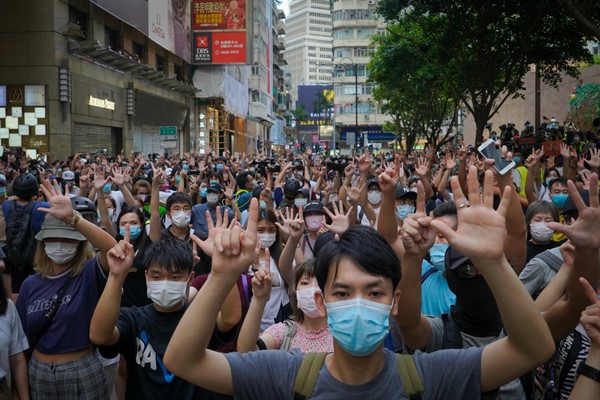For most of the past decade, visions of the future of Hong Kong tended to fall into one of two starkly divided camps. The first, optimistic one held that the surprising resilience of Hong Kong’s civil society, including one example after another of massive and, until recently, overwhelmingly peaceful civil disobedience, would gradually bring Beijing around to the view that trying to impose tight controls over the city was not worth the devastating potential cost.
Hong Kong, after all, had laid golden eggs for China for more than 20 years following Britain’s “handover” of the highly cosmopolitan and globalized outpost in 1997. These eggs consisted of huge financial flows that entered China via Hong Kong’s banks and stock market, as well as access to lots of technology owned by Western companies that remained skittish about making direct investments in mainland China.
The optimists also believed that China would gradually recommit, if never completely accommodate itself, to the kind of general autonomy granted under the so-called “one country, two systems” arrangement that Deng Xiaoping offered to Britain in the negotiations over Hong Kong, since Beijing had its eyes on a far bigger prize: Taiwan. Only by demonstrating patience and suppleness with Hong Kong, the thinking once went, could China hope to peacefully reverse Taiwan’s steady drift toward ever more effective and permanent separation. In other words, if Beijing wanted to induce Taiwan’s politicians to agree to any political rapprochement with China, it had to respect Hong Kong’s limited autonomy.

